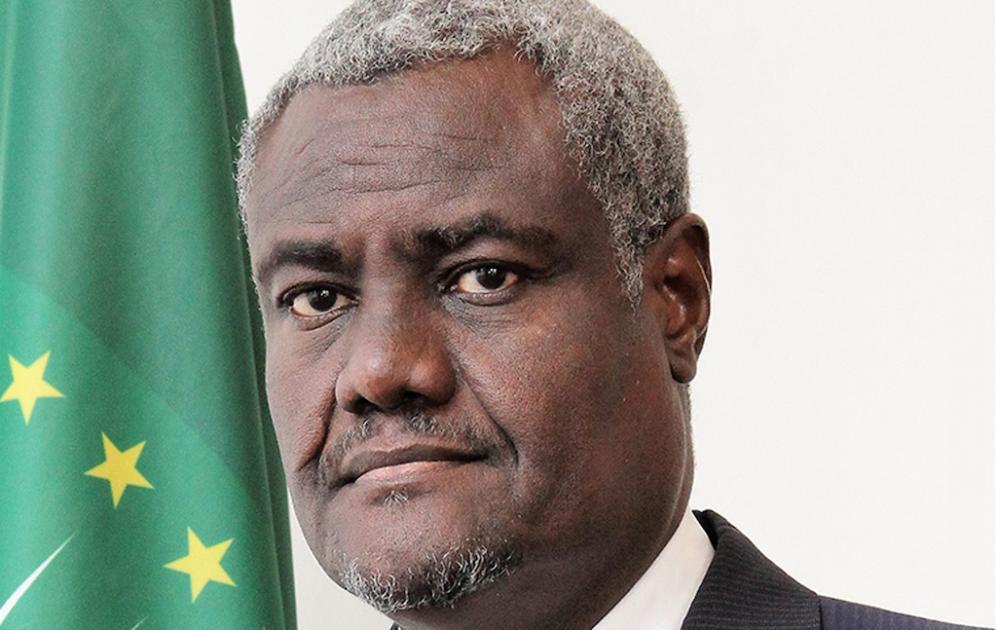The African Union closed its annual summit Sunday by condemning a recent “wave” of military coups that has seen an unprecedented number of member states suspended from the bloc, spurring fears of what its top official described as democratic “backpedalling”.
The putsches were among the main issues raised at the two-day summit, though leaders from across the continent also got bogged down in heated discussions over the AU’s ties to Israel.
Less than two weeks before the summit began Saturday, Burkina Faso became the fourth country to be suspended by the AU after disgruntled soldiers toppled President Roch Marc Christian Kabore.
Guinea, Mali and Sudan are also currently suspended.
“Every African leader in the assembly has condemned unequivocally the wave of unconstitutional changes of government,” Bankole Adeoye, head of the AU’s Peace and Security Council, told a press conference Sunday.
“At no time in the history of the African Union have we had four countries in one calendar year, in 12 months, been suspended,” Adeoye said.
“It gives the impression that Africa is backpedalling to a period when coups d’etat were legion in Africa, and that is not acceptable,” Moussa Faki Mahamat, chair of the African Union Commission, told a press conference after the summit’s final session.
But the AU has been accused of an inconsistent response, notably by not suspending Chad after a military council took over following the death of longtime President Idriss Deby Itno on the battlefield last April.
And while Adeoye touted the AU’s use of suspensions to punish coup leaders, analysts say the body must be more proactive to prevent putsches.
“It is only when crisis hits that we say, ‘Gosh, how come this country is falling apart like this so quickly?'” Solomon Dersso, founder of the AU-focused Amani Africa think-tank, told AFP this week.
Israel debate paused
Also on Sunday, leaders agreed to suspend debate on Faki’s controversial decision to accept the accreditation of Israel, postponing a potentially divisive vote.
Faki’s move last July drew protest from influential members including South Africa and Algeria which argued that it flew in the face of AU statements supporting the Palestinian Territories.
Both countries pushed to have the issue put on the summit agenda.
During Saturday’s session, Faki defended Israel’s accreditation, noting that 44 member states have diplomatic ties with Israel.
He also said the move was “in total harmony” with the AU’s backing of a two-state solution and Palestinian independence.
But Palestinian prime minister Mohammed Shtayyeh on Saturday called for Israel’s accreditation to be revoked, saying it “should never be rewarded” for its “apartheid regime”.
The AU normally prizes consensus, but it was unclear how a vote would have turned out, with a two-thirds majority required to overrule Faki.
Instead a six-country committee will study the issue, diplomats told AFP Sunday.
Along with South Africa and Algeria, the committee will include Rwanda and the Democratic Republic of Congo, which supported Faki’s move, as well as Cameroon and Nigeria, the diplomats said.
Senegalese President Macky Sall, who will serve as AU chair for the next year, praised the bloc’s approach during a press conference Sunday, saying it would “prevent the continent from being weakened by a subject that is not an internal subject”.
Ethiopia peace push
Despite pressure from advocacy groups including Human Rights Watch, the AU summit did not appear to extensively address the 15-month war in Ethiopia, which pits Prime Minister Abiy Ahmed’s government against fighters from the northern Tigray region.
The fact that Ethiopia hosts the AU has made any intervention by the bloc especially delicate, and Faki waited until last August nine months after fighting began to appoint Nigeria’s former president Olusegun Obasanjo as a special envoy tasked with trying to broker a ceasefire.
Ethiopia has also held a seat on the Peace and Security Council throughout the conflict, though it failed in its bid to stay on the 15-member body for the next term, diplomats said.
Adeoye said Sunday it was “not true” that the AU had been slow to respond to a war that has left thousands dead and, according to the United Nations, driven hundreds of thousands to the brink of starvation.
“There was no way the AU would not engage on such a situation given its exact location in Ethiopia,” he said.
Obasanjo will head to war-hit areas this week, and the AU will provide “experts from the African continent” to back up his push for dialogue, Adeoye said.
“We are all working for peace.”







